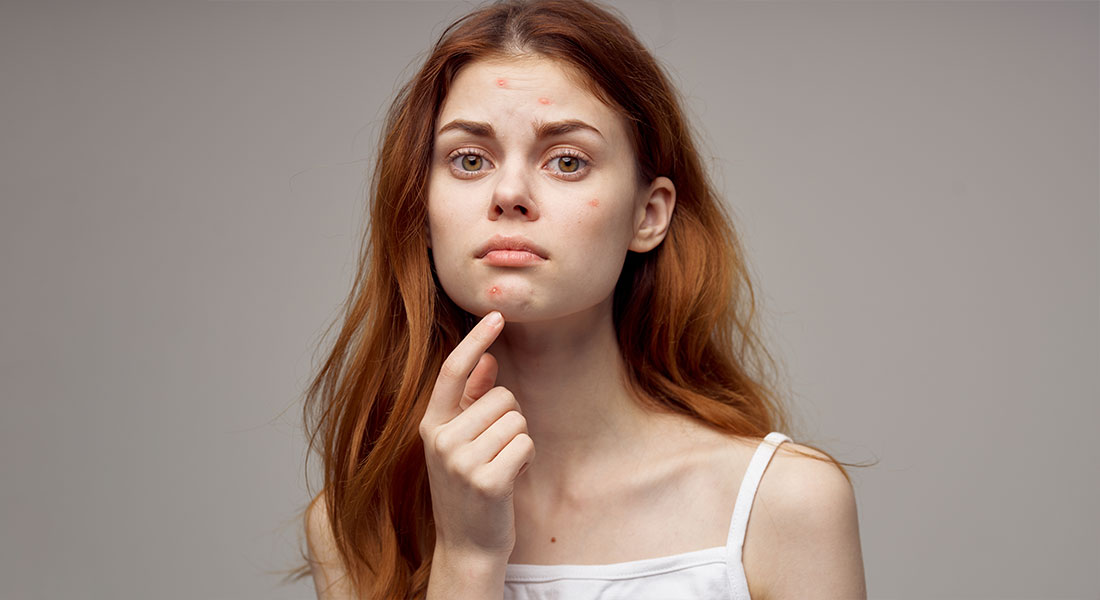
Oily and Acne-Prone Skin 101: Managing Your Oily Skin

A greasy face with unsightly pimples can surely make anyone feel less confident and comfortable with their appearance. While it may seem skin-deep, oily skin and acne may negatively affect a person’s self-esteem and emotional wellness. That’s the reason people with oily skin heavily depend on quick fixes such as using facial blotting papers or applying face powder to remove the excess oil on their face.
The truth is that there’s a lot more that can be done about an oily skin other than quick beauty fixes. If you have an oily skin type, don’t let that excess oil get the best of you. Know the basics of your skin type and commit to a skincare regimen that will work wonders for your oily skin.
The Protective Oil called Sebum
Before you totally hate that oil on your skin, you have to remember that it is there for a good reason. The major cells of the sebaceous glands, which play a key role in maintaining the skin’s well-being, secrete an oily substance called sebum. The sebum moves up the hair follicle and out of the pore to reach your skin. It protects your skin by keeping it moisturized.
However, the rate of sebum production varies among individuals, depending on different factors. Genetic background, diet, stress levels, and hormone levels affect your body’s sebum production. When your sebum secretion is elevated, you end up with an oily skin.
How Acne Develops
Although sebum plays an important role in protecting your skin, it can also cause the dreaded pimples, whiteheads and blackheads. When the hair follicles of your skin are blocked with sebum, dead skin or bacteria, acne develops. Breakouts may range from blackheads and pimples to chronic nodulocystic acne. Whiteheads occur when the trapped material below the skin’s surface forms a white bump, while blackheads appear when the material is exposed to air, causing discolouration.
Skin Care for Oily and Acne-prone Skin
Having an oily skin can truly be problematic, and there’s no medical procedure that can just change your skin type in an instant. However, there are a lot of ways to manage your oily skin.
Change the lifestyle
The right diet gets rid of acne
The best diet advice in dealing with acne appears to be eating a wholesome, low glycemic diet (decreasing dairy, sugar or flour), balanced diet rich in fresh fruits and vegetables, healthy protein sources, and whole grains remove all the possible culprits
Tame Stress
The most important thing you can do in terms of preventing or minimizing acne is to decrease stress in your life
Get Quality Sleep
Make sleep a priority to give your body the rest it needs and your acne a chance to heal
Clean Up Before and After Exercise
Working out is a great way to handle stress. Just make sure you clean your skin before and after workouts so it doesn’t worsen body acne
Cleanse your face daily with a soap-free cleanser
Washing your face to remove dirt and excess oil is necessary, but doing it the wrong way can irritate the skin even more. Make sure your cleanser is mild, non-drying, and alcohol-free. Washing your face twice daily with soap-free cleansers that have a similar pH to the skin is advisable. A 2 in 1 cleanser that exfoliates and cleanses, with a blend of acne fighting AHA and soothing botanical and marine extracts, and added prebiotics to increase the good bacteria, is highly recommended for this skin type.
Moisturize
When you have oily skin, you may think that applying moisturizer isn’t necessary as it may only increase the oil on your skin. However, the skin still needs hydration on areas of skin that are dry such as T-zone and cheeks. Find a non-comedogenic, lightweight bland formulation — gel type, water-based, or oil-in-water emulsions and avoid greasy creams that can worsen the sticky feeling. Oil free and fragrance free moisturizers are better for oily & acne skin. Those suffering from acne will also benefit from moisturizers by countering the extremely drying effect of acne medication.
Apply spray or gel-based sunscreen
To prevent further skin irritation, protecting your face from the damaging rays of the sun is important. Make photoprotection a part of your daily skincare regimen. New sunscreens with microfine particles are found to be safe and effective even for patients with acne and rosacea. Dermatologists recommend using a sunscreen with an SPF of at least 30 and PA +++ above.
Consult a dermatologist for treatments
Instead of squeezing those pimples on your own and wallowing in self-pity, consult a doctor about different treatment options which include topical retinoids, systematic treatments, photodynamic therapy, and lasers. Your dermatologist will recommend the appropriate treatment depending on the severity of your skin problem.
While managing an oily and acne-prone skin can’t be achieved overnight, maintaining a healthy skin even with an oily skin type is not that complicated. The key is to stick to a skincare regimen that works best for your skin.
References
Acne: Overview
https://www.ncbi.nlm.nih.gov/books/NBK279211/
Skin care for acne-prone skin
https://www.ncbi.nlm.nih.gov/books/NBK279208/
Oily Skin: A review of Treatment Options
https://www.ncbi.nlm.nih.gov/pmc/articles/PMC5605215/
Skincare Bootcamp: The Evolving Role of Skincare
https://www.ncbi.nlm.nih.gov/pmc/articles/PMC5172479/
Sunscreening Agents
https://www.ncbi.nlm.nih.gov/pmc/articles/PMC3543289/














